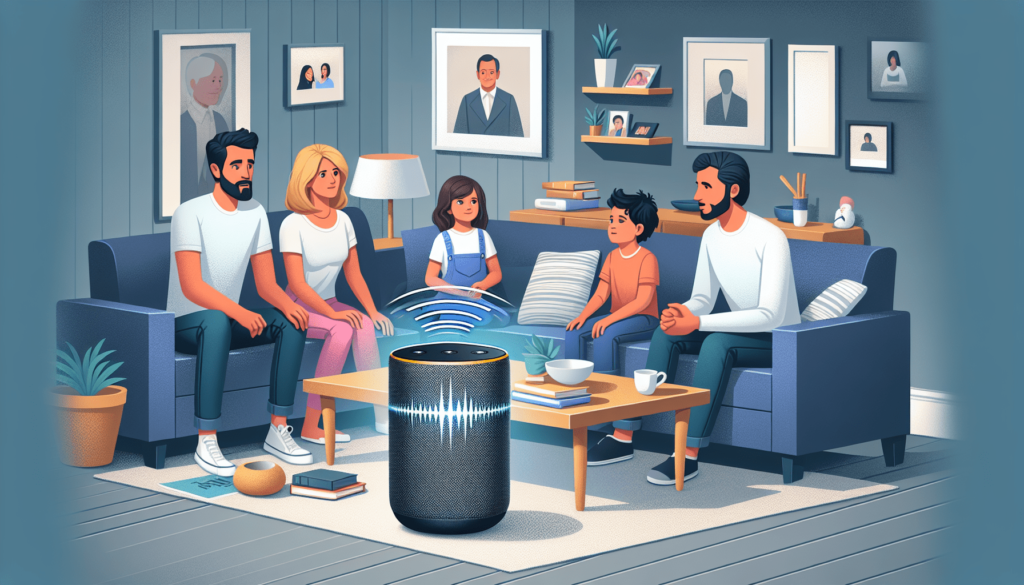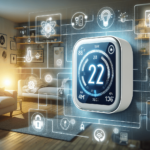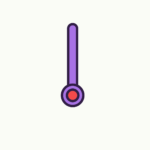Imagine having a virtual assistant always at your beck and call, ready to play your favorite music, answer your burning questions, and even turn off the lights without lifting a finger. Sounds amazing, right? But have you ever stopped to think about the potential privacy concerns that come with voice-controlled smart speakers? With the rising popularity of these devices, it’s crucial to understand the potential risks associated with their always-on microphones and connected data. From unintentional eavesdropping to unauthorized data access, this article explores the various privacy concerns that have become a hot topic in the world of voice-controlled smart speakers.
Data Collection and Storage

Recording and Analyzing Conversations
Voice-controlled smart speakers, such as Amazon Echo or Google Home, have the ability to record and analyze conversations within their range. While this feature is designed to enhance user experience and provide personalized services, it raises concerns about the privacy of these recorded conversations. Users may be unaware that their conversations are being stored and analyzed, leading to potential breaches of privacy.
Permanent Storage of Voice Data
One of the main privacy concerns associated with voice-controlled smart speakers is the permanent storage of voice data. These devices continuously listen for a trigger word or phrase to activate and record conversations. These recordings are often stored on remote servers for an extended period, raising concerns about the security and long-term storage of personal voice data.
Data Sharing with Third Parties
Another significant privacy concern is the potential sharing of voice data with third parties. As voice-controlled smart speakers become more integrated into our daily lives, there is a growing concern about how tech companies utilize and share the data collected from these devices. Users may not have control over the sharing of their voice data, and this lack of transparency raises questions about who has access to this sensitive information and how it is being used.
Security Risks

Potential Hacking and Unauthorized Access
Voice-controlled smart speakers are connected to the internet, making them susceptible to hacking and unauthorized access. If unauthorized individuals gain access to these devices, they can potentially listen to private conversations or even control other connected smart home devices. This security risk raises concerns about the safety and confidentiality of personal information within the home environment.
Vulnerability to Malware and Viruses
Just like any other IoT device, voice-controlled smart speakers are vulnerable to malware and viruses. Malicious actors can exploit security vulnerabilities in these devices, compromising the privacy of users’ voice data and potentially gaining access to other connected devices or networks within the home. This highlights the importance of robust security measures to protect against such threats.
Privacy Breaches
Accidental Activation and Recording
Voice-controlled smart speakers can sometimes be accidentally activated and record conversations without the user’s knowledge or consent. In situations where these devices misinterpret background noise or unintended voice commands, privacy breaches can occur. Users might feel violated knowing that their conversations are being recorded without their intention or awareness.

Invasion of Personal Space and Privacy
The always-on nature of voice-controlled smart speakers may raise concerns about the invasion of personal space and privacy. Users might feel uncomfortable knowing that these devices are constantly listening, even when they are not actively interacting with them. This feeling of constant surveillance can impact the sense of privacy within the home environment.
Voice Recognition Failures
Voice recognition technology is not perfect, and voice-controlled smart speakers may sometimes misinterpret or misunderstand commands. This can lead to unintended sharing of personal information or triggering of unwanted actions. Voice recognition failures pose privacy risks as users may unintentionally disclose sensitive information or experience embarrassing situations due to these misinterpretations.
Lack of User Control
Limited Control over Voice Data
One significant privacy concern is the limited control users have over their voice data. While users can delete their voice recordings manually, they often have limited control over how this data is used or shared by the device manufacturers or third parties. This lack of control raises questions about who ultimately owns and controls the voice data and how it can be used without the user’s explicit consent.

Inability to Opt Out of Data Sharing
Voice-controlled smart speakers often lack clear options for users to opt out of data sharing. Users may not have control over the collection, storage, and sharing of their voice data. This lack of choice compromises user privacy as they are unable to determine who has access to their personal voice data and how it is being utilized.
Ambiguity in Privacy Policies
Complex and Confusing Wording
Privacy policies provided by manufacturers of voice-controlled smart speakers can be complex and filled with legal jargon, making it difficult for users to understand the implications of using these devices. The ambiguity in the language used can lead to misunderstandings and uncertainty regarding the privacy practices and safeguards in place. This lack of transparency puts user privacy at risk.
Vague Statements on Data Usage and Retention
Privacy policies for voice-controlled smart speakers often contain vague statements regarding data usage and retention. Companies might provide little clarity on how long voice recordings are retained, how they are utilized for improving voice recognition, or whether they are shared with third parties. The lack of specific information leaves users uncertain about the extent to which their voice data is being utilized and for what purposes.
Gathering Sensitive Information

Capturing Personal and Identifiable Details
Voice-controlled smart speakers have the potential to capture personal and identifiable information while recording conversations. This includes names, addresses, phone numbers, and even financial information that may be inadvertently shared during conversations. The collection of such sensitive details raises privacy concerns as users may not want this information stored or accessible to anyone beyond their intended conversation partners.
Recording Private Conversations
In scenarios where voice-controlled smart speakers are placed in communal areas of a home, such as living rooms or kitchens, they can unintentionally record private conversations. This can include discussions about personal matters, medical conditions, or even arguments that users may not want to be stored or accessible to others. The fear of having private conversations recorded without consent or control is a significant privacy concern.
Implicit Data Collection
Monitoring Behavior and Preferences
Voice-controlled smart speakers can gather implicit data about users’ behavior and preferences based on their voice interactions. These devices can detect patterns, interests, and even emotional states by analyzing user voice data. This data can be used for targeted advertising, which raises concerns about the level of intrusion into users’ personal lives and the potential manipulation of their behaviors.
Targeted Advertising based on Voice Interactions
As voice-controlled smart speakers collect and analyze voice data, they can tailor advertisements based on users’ voice interactions. This targeting of advertising can be seen as intrusive, as personal information conveyed through voice commands or conversations may be exploited for commercial purposes without explicit user consent. The potential for undue influence and manipulation is a concern for those worried about privacy.
Potential for Misuse
Surveillance and Unauthorized Surveillance
Voice-controlled smart speakers, if compromised or misused, pose the risk of unauthorized surveillance. Hackers or unauthorized individuals gaining access to these devices could potentially eavesdrop on private conversations or monitor activities within households. This intrusion into private lives and spaces undermines the trust users place in these devices and raises serious security and privacy concerns.
Abuse by Hackers or Unauthorized Users
If voice-controlled smart speakers are not adequately protected, they can be abused by hackers or unauthorized users. These individuals could exploit vulnerabilities in the devices to gain unauthorized access to sensitive information, manipulate connected devices, or even harass users through audio interactions. The potential for abuse highlights the importance of robust security measures to protect user privacy.
Multistakeholder Concerns
Privacy Advocacy Groups and Consumer Concerns
Privacy advocacy groups and concerned consumers raise significant concerns regarding the privacy risks associated with voice-controlled smart speakers. These stakeholders emphasize issues such as data collection transparency, consent mechanisms, and the need for stronger privacy safeguards to protect user rights and prevent potential misuse of personal voice data.
Regulatory and Legal Concerns
Regulatory and legal bodies have expressed concerns about the privacy implications of voice-controlled smart speakers. Governments worldwide are exploring privacy regulations to ensure adequate protection for users. Issues related to data ownership, consent, and user control are being assessed to establish guidelines that address the privacy concerns associated with these devices and protect user rights.
Mitigating Privacy Concerns
Managing Voice Data Settings
To mitigate privacy concerns, voice-controlled smart speakers should provide users with clear settings to manage their voice data. This includes options to enable or disable voice recording, control data sharing with third parties, and specify retention periods for voice recordings. By giving users granular control over their data, these devices can empower individuals to exercise their privacy preferences.
Reviewing and Deleting Voice Recordings
To address privacy concerns, voice-controlled smart speakers should allow users to easily review and delete their voice recordings. Users should have a transparent view of the stored voice data and be able to delete any recordings they find intrusive or unnecessary. This feature promotes trust by giving users the option to retain only the voice data they feel comfortable having stored.
Encrypted Voice Data Transmission
To enhance privacy and security, voice-controlled smart speakers should employ encrypted data transmission methods. End-to-end encryption can protect users’ voice data from unauthorized access and ensure that their conversations remain private and secure. Implementation of robust encryption protocols can significantly reduce the risk of privacy breaches and unauthorized surveillance.
In conclusion, voice-controlled smart speakers offer convenience and enhanced user experiences, but they also raise significant privacy concerns. The permanent storage of voice data, potential hacking risks, invasion of personal space, lack of user control, and ambiguous privacy policies are just some of the issues that need to be addressed. To mitigate these concerns, it is crucial for device manufacturers to provide transparent data settings, clear privacy policies, and robust security measures. Additionally, regulatory bodies and privacy advocacy groups play a vital role in shaping policies and guidelines that protect user privacy rights. By addressing these concerns, voice-controlled smart speakers can strike a balance between innovation and safeguarding user privacy.










